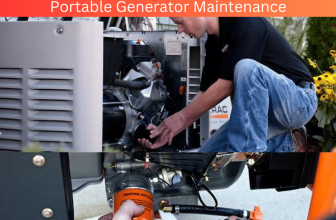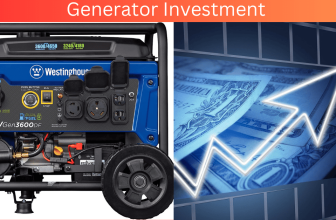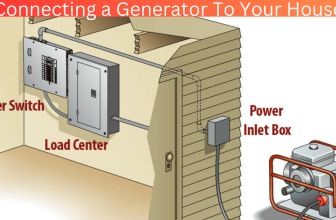Hello! Its common to find ourselves in a situation where we require a generator but find the selection process overwhelming due to the variety of choices available. This article is here to ease such situations by providing readers with comprehensive knowledge on evaluating portable generators- their types and and its impact on enviroment.
We will begin by exploring different types such as gas powered, diesel powered and propane powered models, followed by ways to assess their ecological footprint. Through this piece, I aim at empowering readers with relevant information required for them to make informed decisions based on their individualized needs- thus, ensuring confidence in selecting an option that impacts our planet positively.
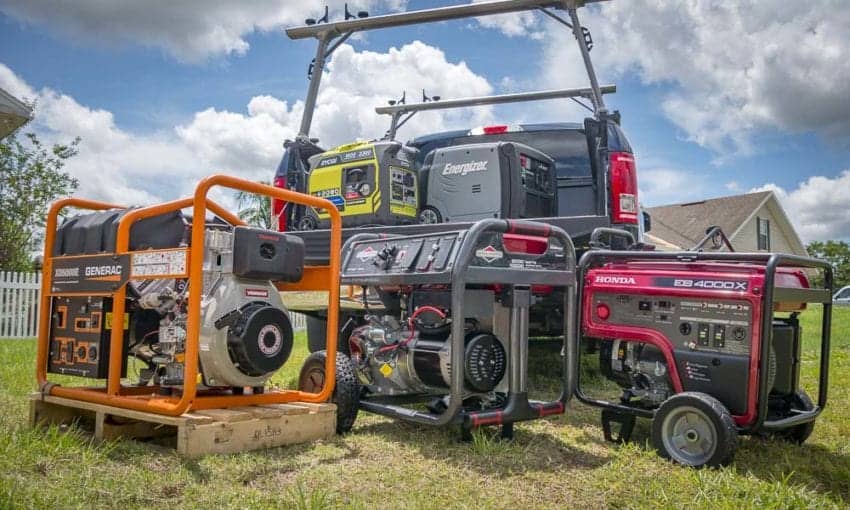
What Are The Different Types Of Generators?
Whether you’re familiar with portable generator usage or not, choosing which kind is right can feel daunting due to all the choices out there today! In this article, we’ll go through the different types of generators available and their potential benefits.
Gas-powered generators are easily the most commonly seen type. These small units run on regular gasoline or diesel fuel and tend to be relatively cost effective while still being useful in emergencies such as power outages or for more adventurous trips out camping. However, they can get quite loud if not correctly maintained and may release harmful pollutants into the atmosphere.
Alternatively, diesel-based portable generator options are usually larger overall but can offer better effectiveness when it comes to producing power output for more considerable energy needs. Diesel models also often require less upkeep than those utilising gasoline, making them more cost effective in the long term in particular. Additionally, diesel varieties are typically less noisy than gas-based options while also having better fuel consumption rates. That said, they may be quite a bit pricier up front – indicating that they may not be ideal for those who would only utilise such equipment occasionally.
Now that we’ve gone through all these details regarding the various types of portable generators out there, let us focus our attention on how gas-powered options differ from diesel powered ones specifically.
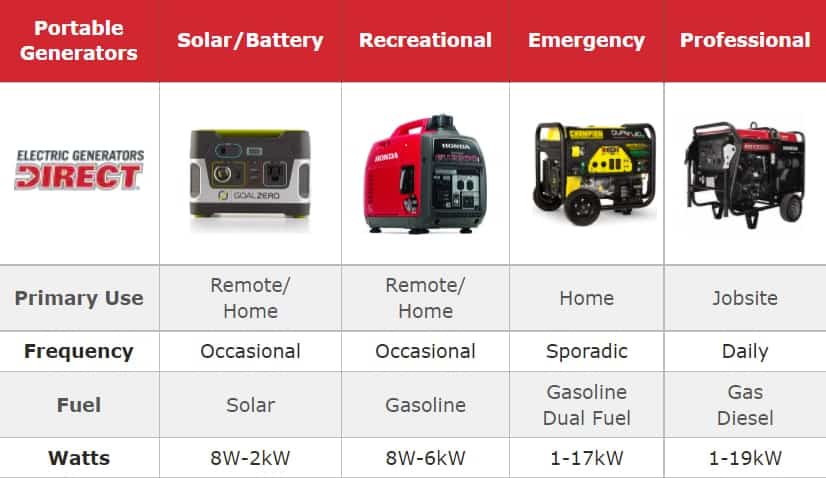
What Is The Difference Between Gas-Powered And Diesel-Powered Generators?
After learning about all the various types of generators available on the market, let’s turn our attention towards gas-powered versus diesel-powered machines.
For many people, gas units are familiar and commonly employed in residential spaces where frequent refueling is necessary due to their reliance on gasoline fuel sources. These machines are lightweight and portable making them an excellent choice for those always on the go!
On the contrary, if you require a more powerful energy source that requires less frequent re-fuelling then diesel models might just be what you’re looking for! These engines boast higher power output while requiring less effort at your end because they need fewer stops for refueling purposes. It’s almost like having free energy at your fingertips! However, there are some disadvantages such as increased weight of these types of units as well as noise levels which might prove challenging when selecting an appropriate generator type that suits your unique needs best.
It is essential that you consider factors like cost, portability and noise levels before making any decisive moves. Although gas-powered machines might be cheaper initially, they do lack endurance over time compared with pricier yet longer lasting diesel counterparts! When choosing between various portable generators available in today’s market, deciding on one comes down entirely upon individual requirements and preferences before purchasing one of your own.
However, it’s important to evaluate the effects to environment each generator type can bring along with it when making a buying decision. Gasoline-powered generators tend to release harmful emissions into the air that contribute to air pollution levels while diesel engines are more efficient and cause much fewer pollutants than their gasoline counterparts.
Hence, if being environmentally friendly is an essential factor for you selecting, a diesel engine generator would be the right choice. Now, let’s learn more about propane-powered generators and their advantages to enhance your knowledge before buying one for yourself.
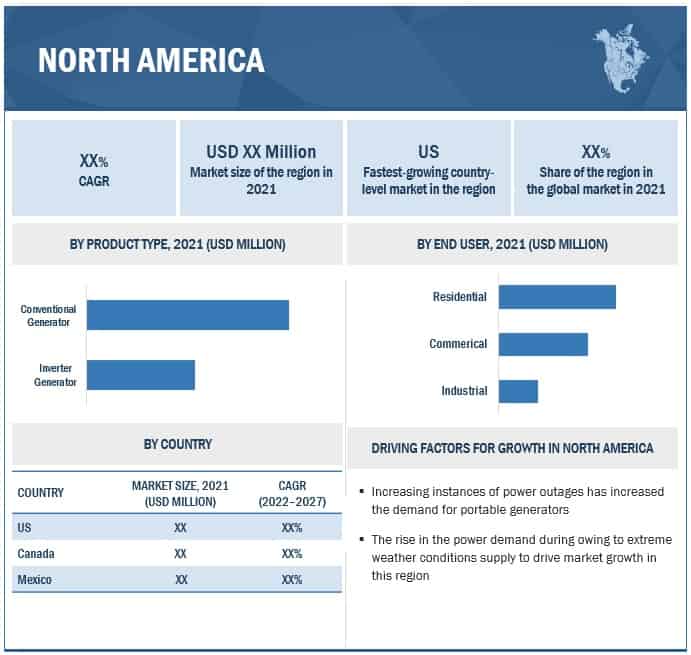
What Are The Benefits Of Propane-Powered Generators?
Propane powered generators offer exceptional benefits for people who need access to consistent power no matter where they go. Consider some advantages:
| Benefits | Advantages | Drawbacks |
|---|---|---|
| Quiet | Affordable | Limited Range |
| Fuel Efficient | Portable | Can’t Overload |
One key benefit is how quietly propane-powered generators operate – making them suitable for use during camping trips or other outdoor activities where noise should be kept at a minimum. Additionally, these types of generators are incredibly fuel efficient and require little maintenance to keep them operating at peak performance.
Furthermore, propane-powered generators are lightweight and portable so you can take them with you wherever you go. However, several drawbacks should be taken into account before considering this type of generator. For one, their range is limited and may not be enough to power several devices or larger appliances at once. Also, these types of generators cannot be overloaded, otherwise, the risk of damage or malfunction rises considerably.
For those in need of dependable power that has minimal effect on the environment, propane-powered generators are a smart option. With that said, let’s examine both the positive aspects as well as potential drawbacks of utilizing solar powered generators.
What Are The Pros And Cons Of Solar Generators?
One of the popular portable generator options is solar power due to its potential cost savings and minimal environmental impact. Despite its advantages, however, there are drawbacks associated with using this type of generator technology. Solar-powered generators operate on renewable sources from the sun and therefore present an eco-friendly option while eliminating contamination resulting from gasoline or diesel fuels use as well as reliance on non-renewable energy sources like fossil fuels.
Additionally, maintenance costs associated with these devices tend to be lower than those linked with gas powered counterparts because they don’t contain any moving parts. However, one significant impediment of adopting solar power technology is that it can significantly inflate initial installation costs. Some models’ prices may prohibit many people seeking viable alternatives to traditional gas-powered options from purchasing them outrightly. Also noteworthy is that specific features available in conventional gas-powered units like remote operations or overall portability might not exist in certain low cost or emergency use only models designed only for short term situations.
To make an informed decision when selecting a generator that meets your needs, you need to weigh all these pros and cons carefully. When making significant investments such as purchasing an energy system, there are no shortcuts to ensure that you get exactly what you need down to every last detail. This rings true especially when trying to choose between traditional power generators and solar solutions which offer cleaner alternatives but come at a cost premium up front.
The key here is in being mindful of your households actual electricity demand patterns: How much power do you use daily? During peak hours? Knowing these will allow informed decisions on whether investing in clean technologies like PV systems are financially viable given expected savings from lower consumption over the long run.
How To Choose The Right Generator For Your Needs
It is natural to feel overwhelmed when faced with so many options while shopping for a portable generator. However, there are important factors that can guide your decision making process! Start by determining what type of power and wattage you require based on your intended use – will all your devices be running at once or sequentially?
Once this is established, consider fuel type and efficiency ratings alongside features like multiple outlets and overload protection. Don’t forget about portability either – this is likely one of the reasons why you’re considering a portable option!
By keeping these key points in mind during the selection process, evaluating a portable generators efficiency becomes much more manageable. To accurately measure the implications to environment of a generator, one must pay considerable attention to how effectively it utilizes fuel.
Evaluating The Generator Efficiency
We’ve all been there – needing a reliable generator for an outdoor event but being unsure about its effects on the environment. However, rest easy knowing that there are ways to assess the efficiency of generators before making a purchase allowing you to minimize noise pollution while maximizing its benefits.
Evaluating generator efficiency involves finding models that use fuel effectively while producing minimal emissions. Energy saving modes or automatic shutoffs when power is restored can be helpful features to look out for.
Opting for larger capacity generators with high efficiency ratings can also lead to reduced noise output. By prioritizing efficient generators we can reduce environmental damage without sacrificing utility. Research different models available and determine which ones are best suited to meet your needs affordably and sustainably.
Of course, we mustn’t forget about evaluating noise levels with equal importance- this further contributes towards creating healthier more sustainable environment.

Cities are often synonymous with an overwhelming amount of ambient noise, therefore, considering potential generator purchases’ impact is crucial if we want peace at home or workspaces free from distractions. These noisy machines can create additional issues if not adequately regulated. It’s essential to assess a portable generators noise levels before deciding which one to purchase.
Start with examining its sound pressure level (SPL) and frequency range. The SPL is measured in decibels (dB) indicating how loud the generator is while the frequency range tells us what types of sounds it produces.
In general, residential use generators should not surpass an SPL of 75 dB to avoid contributing unnecessarily to existing noise pollution issues. However, specific regulations may require louder models based on their size or type.
Generator selection entails factoring in various critical components such as sound production and environmental impact – both of which depend largely upon size differences between models available in the market today. The smaller units generally produce sharper sounds easily discernible by humans compared with larger types creating low frequency tones that could go unnoticed but still have some negative implications on our surroundings. As such, it’s important to examine these variables meticulously before determining what model suits ones unique requirements best.
Acquiring sufficient knowledge about specific generator models before making a purchasing decision is essential to ensure one doesn’t introduce unnecessary noise pollution into the area.
Equipped with this information, we can now shift our focus to calculating generator emissions – an equally vital aspect in identifying a practical portable generator for various residential and commercial use cases.
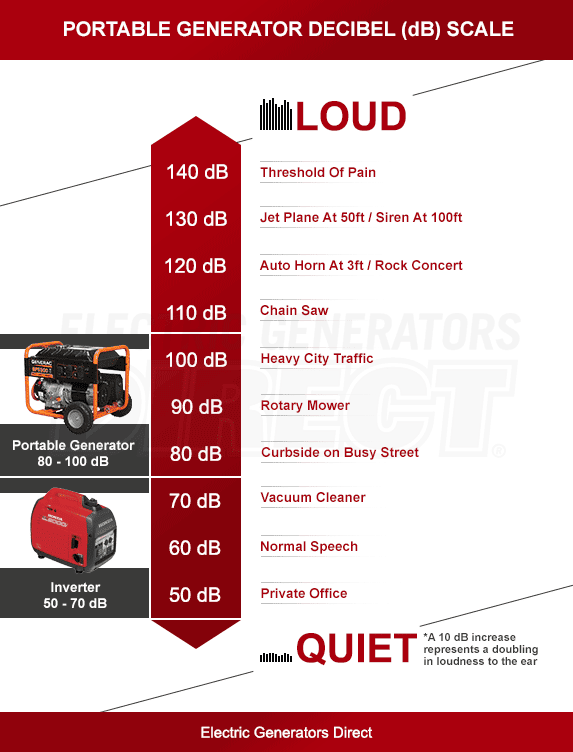
How To Calculate Generator Emissions
We all must bear some responsibility towards preserving our environment for future generations. One way we can do so is by understanding how generators contribute to pollution levels due to their emissions output.
It might seem complex initially but obtaining accurate calculations of generator emissions necessitates considering several critical factors while doing so efficiently.
The first step is knowing which type of fuel powers your generator since gasoline, diesel or propane has varying impact on calculation procedures. Secondly, you need to determine the fuel consumption rate hourly by considering two ratings, power rating and efficiency rating. To measure exhaust emissions effectively one must precisely gauge carbon dioxide, nitrogen oxides, hydrocarbons and particulate matter generated.
This requires knowledge of both engine load and verified sources such as EPA guidelines or manufacturer data sheets for emission factors. Finally, to obtain an accurate portrayal of your generators total exhaust emissions – multiply each influencing factor by its corresponding emission rate per unit volume or mass intelligently.
As we progress through our assessment of generator-related effects on environment, it is necessary to expand our view and examine additional elements that shape their influence on our surroundings.
Through analyzing these factors accordingly and taking an expansive view, only then can we begin to comprehend fully the total implications stemming from generator usage.
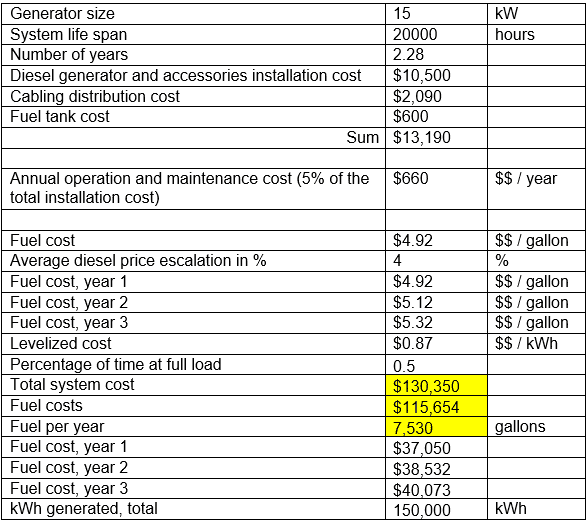
Factors To Consider When Assessing Generators’ Impact On The Environment
Understanding how portable generators affect our environment requires us to take a holistic view that considers all the aspects involved in their operation. These factors include not just their power sources but also the kind and quantity of emissions they release into nature.
A generator’s energy source plays an essential role in determining its ecological footprint; those running on gasoline or diesel are typically more harmful than alternatives such as solar or propane powered models. Additionally, your generators age and condition can have an effect on pollution levels. Older units may emit more pollutants while being less efficient compared with newer ones. Finally, usage duration is another crucial variable since running your generator for extended periods leads to increased emissions compared with shorter usage times – adding yet another layer to consider when assessing its overall impact on the environment.
After factoring in all these elements comprehensively lets look at some approaches we can adopt to lower portable generator emissions.
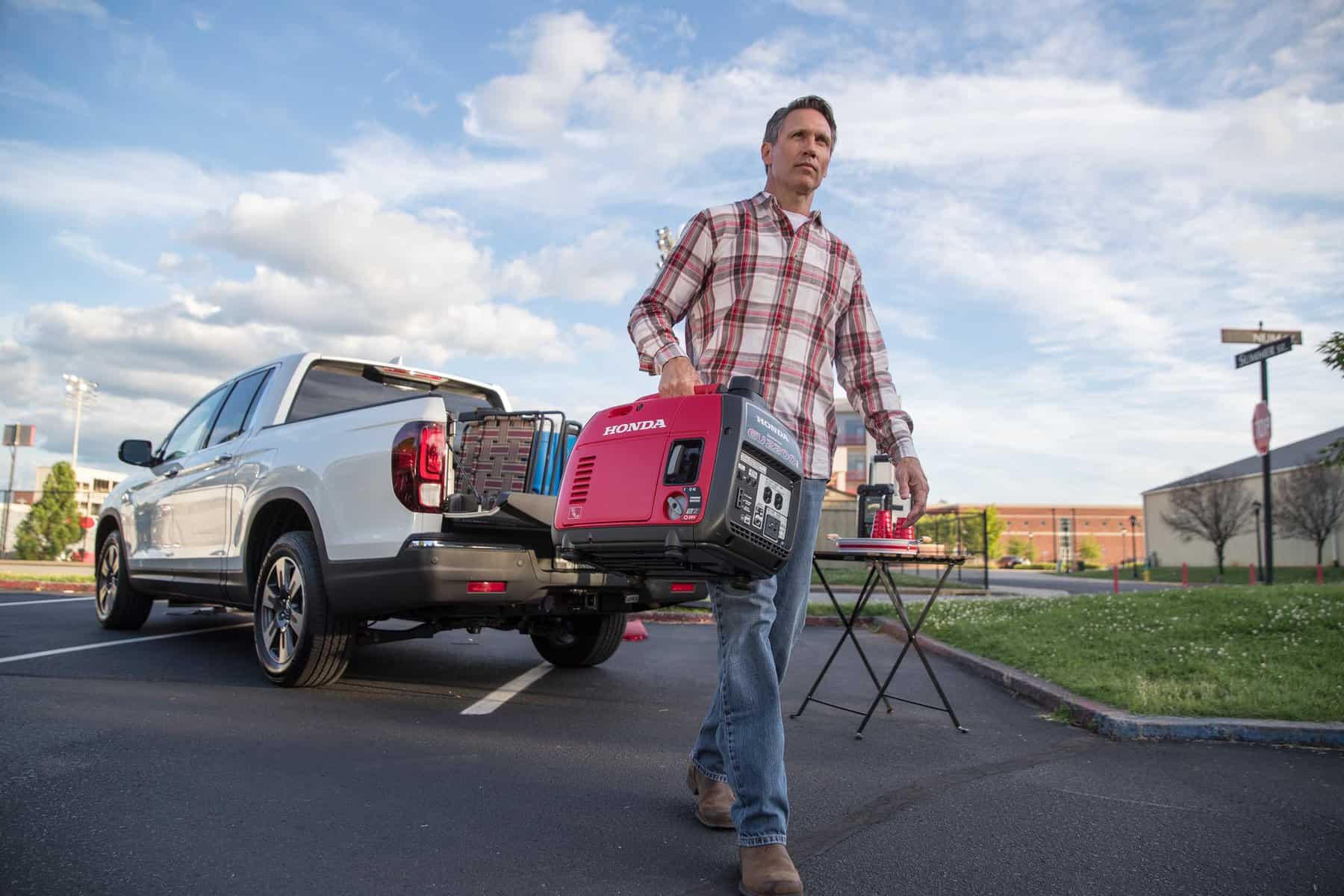
Steps To Take To Reduce Generator Emissions
Portable generators are undoubtedly convenient in multiple situations, however, concerns on the environment must be addressed holistically before their usage becomes mainstream. We must safeguard our planet against pollution while still enjoying the comfort of a portable generator.
The type of fuel used in generators significantly affects their carbon footprint, therefore, opting for diesel is an excellent start towards reducing harmful emissions into the environment. Diesel has lower carbon dioxide emission rates per gallon compared to alternatives like propane or gasoline.
Another consideration that directly impacts emissions is choosing engines with suitable power output levels and sizes that align with individual needs – smaller capacity engines produce fewer pollutants than larger capacity ones.
Maintenance routines have implications on reducing harmful generator emissions as well – regularly replacing air filters and spark plugs enhances efficiency and reduces toxicity levels released into the atmosphere significantly.
Moreover, maximum utilization of generators requires limiting unnecessary idling time since this produces higher amounts of greenhouse gases compared to turning off and restarting only when needed.
Adhering to these straightforward guidelines while still getting the best out of your generator can reduce its impact on environment significantly.
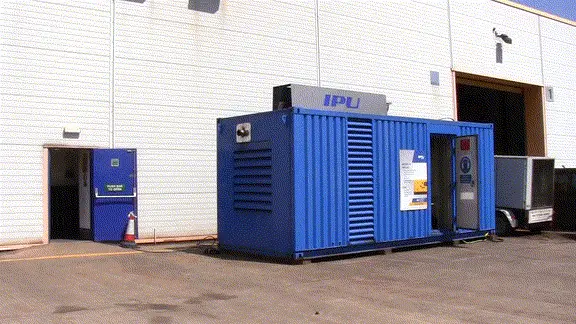
Frequently Asked Questions
What Is The Average Cost Of A Portable Generator?
Dipping your toes into buying a portable generator but curious about how much it might set you back?
While there isn’t an easy answer due to variables like generator type and necessary wattage output – let’s delve deeper! Your average portable generators usually falls somewhere between $500-$1000 retail-wise; however be aware that highly specialized models boasting sophisticated specs can potentially exceed this range.
Yet fear not savvy shoppers – within these given price points lies ample choice for an affordable and powerful generator that covers your essential power needs.
How Long Do Portable Generators Typically Last?
When circumstances demand an alternative source of power at home or outdoors owning a portable generator is convenient; yet it’s longevity remains questionable.
Generally speaking, anywhere from 10 to 20 years is how long you can expect your portable generator to function depending on factors like its type and quality. Regular maintenance plays a crucial role in prolonging its life expectancy further still. An essential checklist must include monitoring oil levels systematically; exchanging air filters and spark plugs when necessary; cleaning up any trash or detritus which may accumulate over time etcetera; this way your mainstay electricity provider continues serving trouble free for an extended period.
Are Portable Generators Safe To Use?
For those who require flexibility when it comes to accessing electricity nothing beats the convenience that comes from a portable generator! Not only are they compact and easy to use but most importantly they’ve been crafted prioritizing safety above all else – something very important when dealing with electricity! These impressive machines come complete with GFCI outlets, low oil shutoff and spark arrestors ensuring efficient hazard free use every time you turn them on! Finally, rest easy knowing that user manuals are also provided to ensure safe operation whenever you need it!
How Often Do Portable Generators Need To Be Refueled?
The question regarding how long one can run their portable generator before needing a refill is something that crops up time and again among individuals using such devices. This can vary considerably depending on two key factors: the size of your generator and its energy output needs.
As expected, smaller generators require more frequent fill ups as compared to their larger counterparts. As a rule of thumb, most portable generators call for a refill every four to six hours though there are particular models that run without needing any attention for up to twelve hours at once! However, convenient this may sound though, don’t forget that its imperative you use only appropriate fuel when refilling your machine or face potentially grave consequences.
Does The Size Of The Generator Affect Its Performance?
Wouldn’t it be helpful if someone could explain how much difference there really is between small vs large portable generators? If you’re in the market for one of these devices then its worth noting that there are clear pros and cons for both types.
For instance, larger generators boast greater wattage levels which make them ideal for hefty projects like construction sites or large events. However, they can also be cumbersome due to their size and relatively high costs compared with smaller models. Meanwhile, toward small models these are often less expensive & easy to move around – yet their limited power may not suffice when running electronics or appliances that demand more electricity. Ultimately, though it all depends on your needs – while a larger generator might be more expensive it will provide the muscle you need for demanding jobs.
Conclusion
Making the decision to purchase a portable generator requires much contemplation. Analyzing the cost-effectiveness, functionality, and robustness of these machines against their effect on nature and environment cannot be overlooked.
Though portable generators are advantageous sources of electricity accessibility but they could also pose serious dangers if operated recklessly or without proper precautions. Therefore, it’s essential to conduct your due diligence before committing financially so that you can make an informed choice which takes into account all related aspects coherently .
If done properly with adequate consideration , owning a portable generator will prove extremely beneficial – both personally as well as to the environment.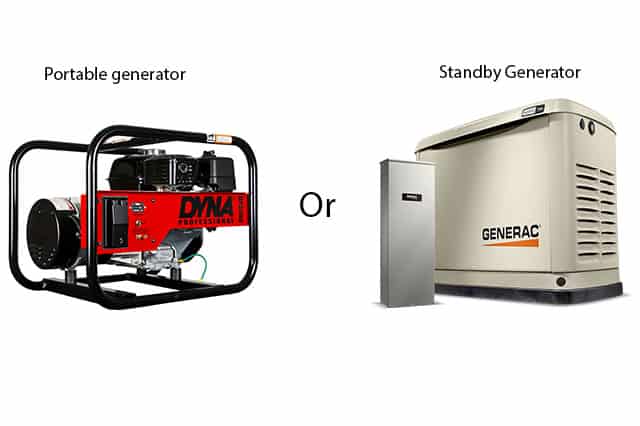
Image Credit: empowergenerators



